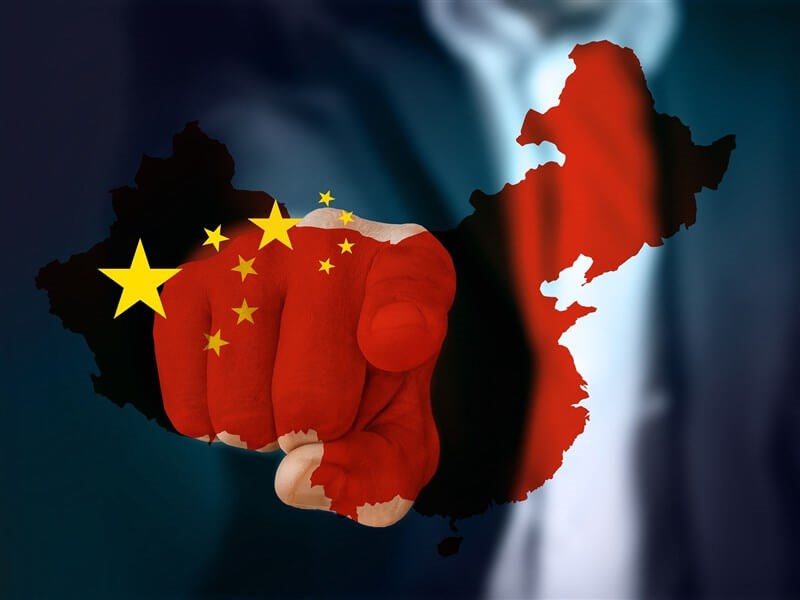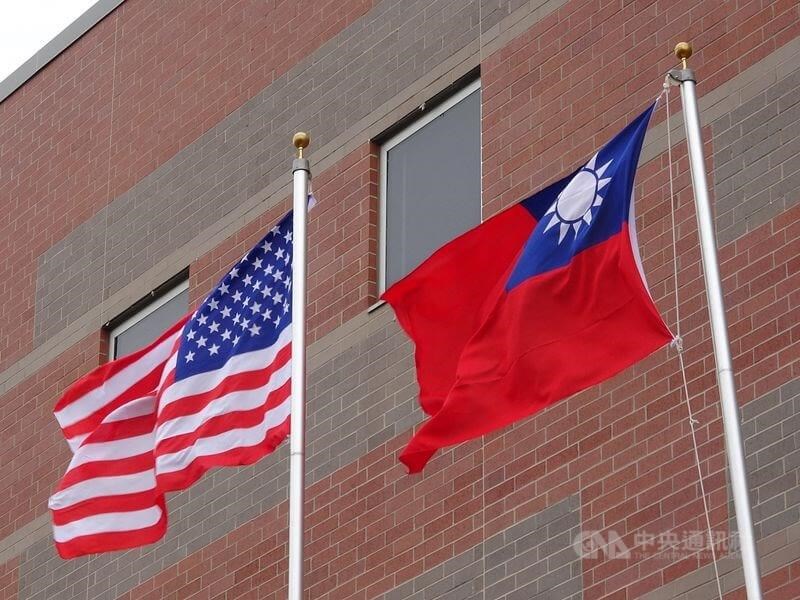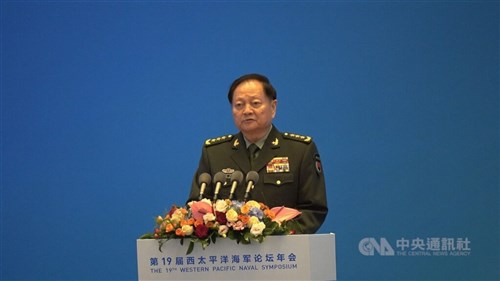ANALYSIS / China's local bounty use shows intimidation with flexibility: Scholars

Taipei, Nov. 15 (CNA) China's recent use of local public security bureaus to issue bounty notices against specific Taiwanese individuals reflects a new tactic of "judicial intimidation" aimed at Taiwan that also gives Beijing room for flexibility, scholars told CNA.
Since late October, three well-known Taiwanese have been cited by local public security bureaus in China for alleged offenses related to "secession," adding to similar incidents in June and early October that targeted dozens of purported members of Taiwan's military.
Notably, all of them have been listed on bounty notices or placed under criminal investigation by different local public security bureaus across China, even though those bureaus primarily serve as local law-enforcement authorities similar to local police.
Why local bureaus?
Hung Yao-nan (洪耀南), deputy director of Tamkang University's Institute of China Studies, told CNA that although the two most recent notices were issued by local bureaus rather than higher-level bodies such as the Ministry of Public Security, they were in essence carried out at the behest of the central government.
One of the notices Hung referred to involved YouTubers Pa Chiung (八炯) and Chen Po-yuan (陳柏源), who were named in a bounty notice issued Thursday by the public security bureau in Quanzhou in Fujian Province on suspicion of "inciting secession."
Individuals who provide tips or help catch the duo were to receive rewards ranging from 50,000 to 250,000 Chinese yuan, or roughly US$7,045 to US$35,226, the Quanzhou bureau said.
The other notice was issued on Oct. 28, when Democratic Progressive Party (DPP) lawmaker Puma Shen (沈伯洋) became a target of the public security bureau in Chongqing in southwestern China.
It said in a notice that it had opened an investigation into Shen for what it described as his "criminal activities of secession," but it did not provide any potential rewards for information related to his case.
"By letting local authorities shoulder the execution risk, Beijing can test the international response," Hung said in a phone interview Friday.
"If the backlash is too strong, it can walk the decision back and say it was merely a local action," he said, adding that such a maneuver gave Beijing "room for flexibility."
Why Chongqing and Quanzhou?
As for why different local bureaus issued the two notices, Hung noted that Chongqing is a directly administered municipality, while Quanzhou is only a prefecture-level city.
"Within the Chinese Communist Party's (CCP) framework, directly administered municipalities are better able to represent the power of the state," he said, suggesting this was why Chongqing was chosen to go after Shen, an incumbent lawmaker in Taiwan.
Hung said Beijing did not want the central government to act directly to avoid any appearance of a state-level accusation against a lawmaker in a foreign country, but Chongqing's political status still effectively allowed it to speak on Beijing's behalf.
In terms of the YouTuber pair, he said Beijing did not want to give them too much prominence and therefore chose Quanzhou, a city across the Taiwan Strait that he described as a "strategic demonstration zone" for Taiwan.
New tactic with chilling effect
Hung said Beijing adopted the new tactic of "normalizing judicial intimidation" this year through bounty notices or warrants issued by local public security bureaus across the country.
On Oct. 11, the public security bureau in Xiamen issued a bounty notice for what it said were 18 "core members" of the Taiwanese military's "psychological warfare unit."
The Guangzhou Municipal Public Security Bureau issued a warrant on June 5 for 20 individuals it identified as members of the Information, Communications and Electronic Force Command.
Both the Xiamen and Guangzhou notices came with rewards of 10,000 yuan for those who provide tips.
The notices issued in Xiamen, Guangzhou and Quanzhou all included the Taiwanese ID numbers of the individuals named, while the one concerning Shen only provided his age and stated that he is from Taipei.
By publicizing such information, Chinese authorities are trying to project the message that "we know everything about Taiwan," said Lin Ying-yu (林穎佑), an associate professor at Tamkang University's Graduate Institute of International Affairs and Strategic Studies.
This disclosure can also deter others who may wish to engage in similar work, thereby creating a chilling effect, Lin added.
-
![Iran could cloud Trump-Xi talks but unlikely to spark Taiwan war: Scholars]() Iran could cloud Trump-Xi talks but unlikely to spark Taiwan war: ScholarsEscalating conflict in the Middle East is unlikely to trigger an immediate cross-strait crisis or directly imperil Taiwan in U.S.-China dealings, but it could pose growing risks by straining U.S. resources and complicating the upcoming Trump-Xi meeting, scholars said.03/02/2026 06:13 PM
Iran could cloud Trump-Xi talks but unlikely to spark Taiwan war: ScholarsEscalating conflict in the Middle East is unlikely to trigger an immediate cross-strait crisis or directly imperil Taiwan in U.S.-China dealings, but it could pose growing risks by straining U.S. resources and complicating the upcoming Trump-Xi meeting, scholars said.03/02/2026 06:13 PM -
![U.S. policy unchanged despite Taiwan omission in defense strategy: Analysts]() U.S. policy unchanged despite Taiwan omission in defense strategy: AnalystsThe absence of Taiwan in the Pentagon's recently released 2026 National Defense Strategy (NDS) has raised concerns about the United States' commitment to the island nation's defense.02/07/2026 04:31 PM
U.S. policy unchanged despite Taiwan omission in defense strategy: AnalystsThe absence of Taiwan in the Pentagon's recently released 2026 National Defense Strategy (NDS) has raised concerns about the United States' commitment to the island nation's defense.02/07/2026 04:31 PM -
![Xi's military purge raises Taiwan miscalculation risk: Experts]() Xi's military purge raises Taiwan miscalculation risk: ExpertsChinese President Xi Jinping's (習近平) ongoing purge of senior military leaders, most recently targeting top general Zhang Youxia (張又俠), could help him consolidate power and potentially increase the risk of strategic miscalculation over Taiwan, according to experts.01/27/2026 09:31 PM
Xi's military purge raises Taiwan miscalculation risk: ExpertsChinese President Xi Jinping's (習近平) ongoing purge of senior military leaders, most recently targeting top general Zhang Youxia (張又俠), could help him consolidate power and potentially increase the risk of strategic miscalculation over Taiwan, according to experts.01/27/2026 09:31 PM
-
Society
Rain, cooler weather expected across Taiwan on Lantern Festival
03/02/2026 08:13 PM -
Society
Iran conflict to 'severely' delay Taiwan mail to 17 countries
03/02/2026 06:32 PM -
Cross-Strait
Iran could cloud Trump-Xi talks but unlikely to spark Taiwan war: Scholars
03/02/2026 06:13 PM -
Society
Iran-linked hostilities impact over 2,000 Taiwan travelers
03/02/2026 05:52 PM -
Society
Qingjing Farm to pay compensation for horse that mangled child's ear
03/02/2026 05:15 PM


